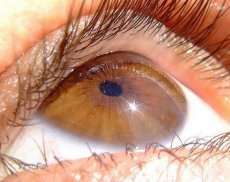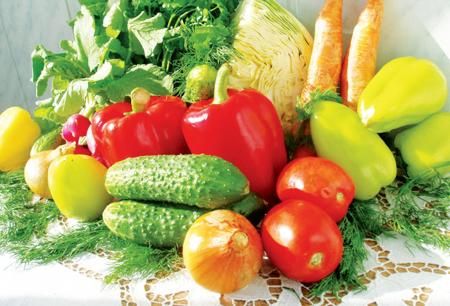
All iLive content is medically reviewed or fact checked to ensure as much factual accuracy as possible.
We have strict sourcing guidelines and only link to reputable media sites, academic research institutions and, whenever possible, medically peer reviewed studies. Note that the numbers in parentheses ([1], [2], etc.) are clickable links to these studies.
If you feel that any of our content is inaccurate, out-of-date, or otherwise questionable, please select it and press Ctrl + Enter.
How to improve your eyesight with vitamins?
Medical expert of the article
Last reviewed: 06.07.2025

When Food with Vitamins Doesn't Do You Good
Vitamins can be destroyed during heat treatment of food. That is why you should not pour out the broths – they will make good rich soups. What do we know about vitamins during cooking? For example, vitamins B2 and vitamin C are water-soluble. They also tend to oxidize when exposed to air, and are destroyed at high temperatures. Vitamin C loses 90-95% of its properties when heated.

Draw your own conclusions: how much vitamin C will remain in currant jam that you simmer for at least half an hour? Therefore, it is advisable not to boil vegetables containing vitamins C and B2, but simply pour boiling water over them and leave them to infuse tightly with a lid. Eat the products that you poured over them, and do not pour out the broth, but drink it - the useful substances from the products pass into it.
Be aware that vitamin C also tends to be destroyed by contact with iron (metal objects) and copper. Think before stirring vitamin C products with a metal spoon or ladle.
Vitamins C and E for your vision
These are great vitamins that actually help your eyes feel better. According to research, including vitamins C and E in your diet can help reduce your risk of cataracts and slow down the progression of the disease if it has already grabbed you in its claws.
If you regularly include B vitamins in your diet, ophthalmologists say, your vision will improve and eye fatigue will decrease.
Products with vitamin C in your diet will help cope with glaucoma at an early stage, and also normalize intraocular pressure.
Vitamin A in your diet (constantly consumed) will increase the light sensitivity of the eye. They activate the formation of light-sensitive pigment.
Vitamin D and your vision
The body's ability to independently produce vitamin D becomes weaker with age. This is especially important for people over 60. Their ability to independently produce vitamin D decreases to almost zero. And this vitamin is important for the prevention of osteoporosis and the prevention of blood pressure surges.
If you rarely get sun, vitamin D deficiency gets worse over time. Then you need to add it to your diet with vitamin supplements.
Why does a person's vision deteriorate and what do vitamins have to do with it?
Vitamins for improving vision are very important, especially for older people. At this age, almost 85% of people develop retinal degeneration processes. To stop or slow them down, the right vitamins in the diet are important, and in sufficient quantities. Otherwise, a person risks gradually going blind.
If you regularly include vitamins such as E, C, zinc, beta-carotene in your diet, the risk of developing destructive processes in the eye tissue and, as a consequence, the risk of blindness is reduced by at least 15-20%.
According to research, those people who have taken products with vitamin C for 10 years or more reduce the risk of developing early signs of cataracts by almost 80%. And low lens transparency is much less of a threat to such people when taking vitamins for eye health - the risk decreases by 76%.
Vitamin overdoses
There is still a danger of vitamin overdoses. This means that an overdose of vitamin C contributes to the development of the same cataract. If this disease is already progressing, it is worth carefully planning the doses of vitamins in the diet.
Please note: If you have been prescribed vitamins for your eyes and you are taking other vitamins, be sure to consult your doctor. An overdose can be harmful to your vision and nervous system.
Please note this significant fact: an excess of vitamin C ultimately increases the risk of developing kidney and gallstones, as well as increased irritability of the gastric mucosa.
When you choose vitamins in a pharmacy, pay attention to the label and instructions. The label always contains information about how many milligrams of vitamins are contained in this complex. The dose of vitamins is indicated in units of measurement such as mg, mcg, IU.
Get your vision-improving vitamins not only from pharmaceutical pills, but from fresh vegetables and fruits. Green salads, cereals, fresh vegetables, low-fat cottage cheese and sour cream, low-fat milk, and beans will be an excellent source of vitamins for your eyes.


 [
[